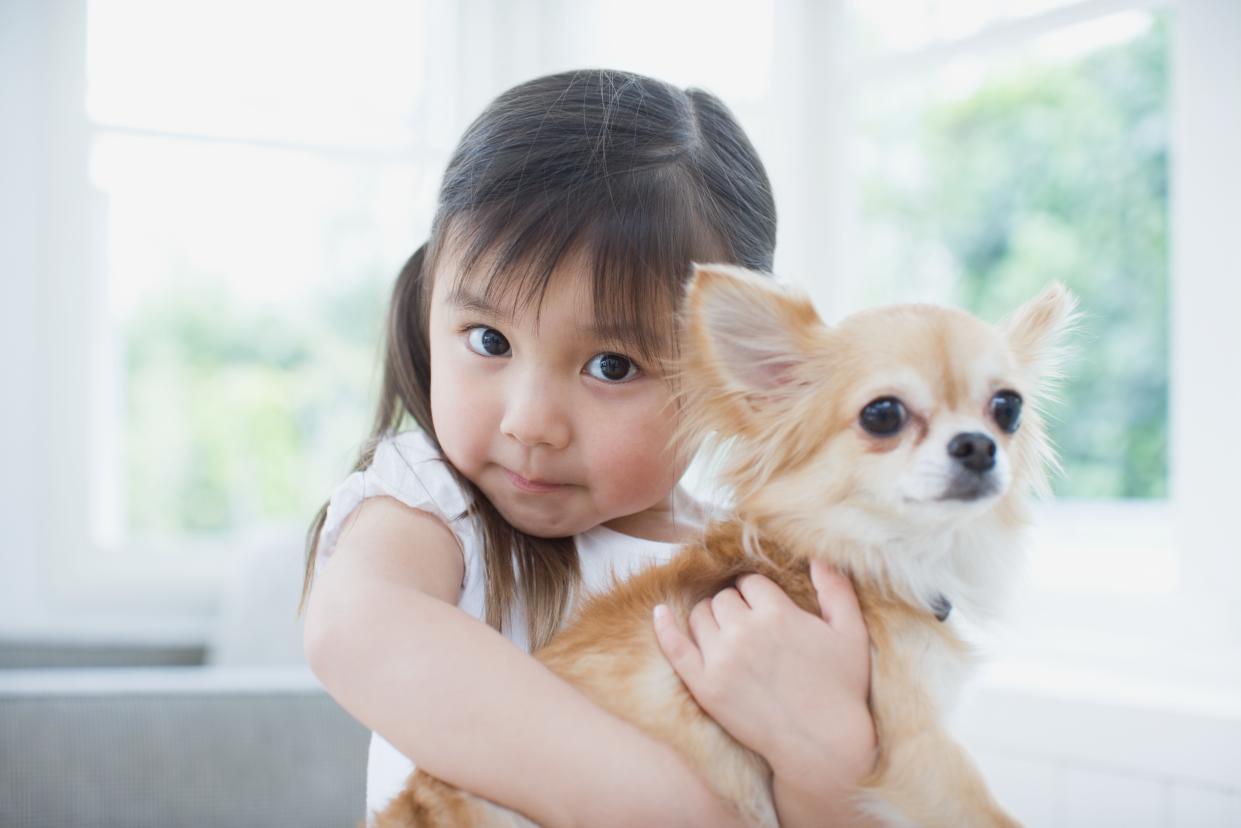Death of a pet can lead to depression in children, study finds

The loss of Rover, Felix or Thumper often triggers tears, but while parents may think the sadness is fleeting, new research suggests a child’s mental health could be impacted by the death of a pet.
Scientists from Massachusetts General Hospital looked at 6,260 children, who were followed from their early life up to eight years old.
Results revealed “psychopathology symptoms” – like jealousy, poor social integration and impulsiveness – were more common among the youngsters who had loved a pet that died than those who had affection towards a living animal.
Read more: Top-rated vacuum cleaner a must-buy for pet owners
This could develop into depression that lasts up to three years after the beloved pet died, according to the scientists.
The bond a child forms with a pet can mimic human relationships in terms of the affection, sense of protection and reassurance the individual receives, they added.
Previous studies have also shown children often turn to pets for comfort and to voice their concerns.

“One of the first major losses a child will encounter is likely to be the death of a pet, and the impact can be traumatic, especially when that pet feels like a member of the family,” said lead author Katherine Crawford.
“We found this experience of pet death is often associated with elevated mental health symptoms in children, and that parents and physicians need to recognise and take those symptoms seriously, not simply brush them off.”
Two in five (40%) people in the UK own a pet. In the US, 67% of households – around 85 million families – have a furry friend.
The strong bond that can form between an animal and a child has been linked to increased empathy, self-esteem and social competence. While all positive traits, the downside can be the grief a child endures once the pet passes away.
Read more: 5 signs your cat genuinely bonded with you during lockdown
In their paper “The mental health effects of pet death during childhood: is it better to have loved and lost than never to have loved at all?” the scientists analysed data from the Avon Longitudinal Study of Parents and Children, carried out in Bristol, England.
This was the first time any scientists had analysed the mental health responses of children to a pet’s death, with similar studies focusing on adults.
The children were grouped based on pet ownership and death from birth to seven years old – never loved, loved without loss, loved with loss.
Psychopathology symptoms at eight years old were then compared between the groups.
“Thanks to this cohort, we were able to analyse the mental and emotional health of children after examining their experiences with pet death over an extended period,” said study author Dr Erin Dunn.
Results – published in the journal European Child & Adolescent Psychiatry – revealed psychopathology symptoms were more common among the children who had loved with loss than those who had loved without loss, particularly in the male participants.
“We observed the association between exposure to a pet’s death and psychopathology symptoms in childhood occurred regardless of the child’s socioeconomic status or hardships they had already endured in their young lives,” said Dr Dunn.
The timing of a pet’s death or the number of animals that had passed away were not linked to psychopathology symptoms.
Dr Dunn believes this speaks to the “durability of the bond with pets that is formed at a very early age and how it can affect children across their development”.
Read more: Hungry dogs made to work for their snack
There was also no difference in symptoms between the children who had loved with loss and those who had never loved an animal.
The scientists concluded “pet death may be traumatic for children and associated with subsequent mental health difficulties”.
“Adults need to pay attention to whether those feelings are deeper and more profound, and if they're lasting longer than might have been expected,” said Crawford.
“They could be signs of complicated grief and having someone to talk to in a sympathetic or therapeutic way may be extremely helpful for a child who is grieving.”
When it comes to pet ownership among children, “it may not be ‘better to have loved and lost than never to have loved at all’”, wrote the scientists.


